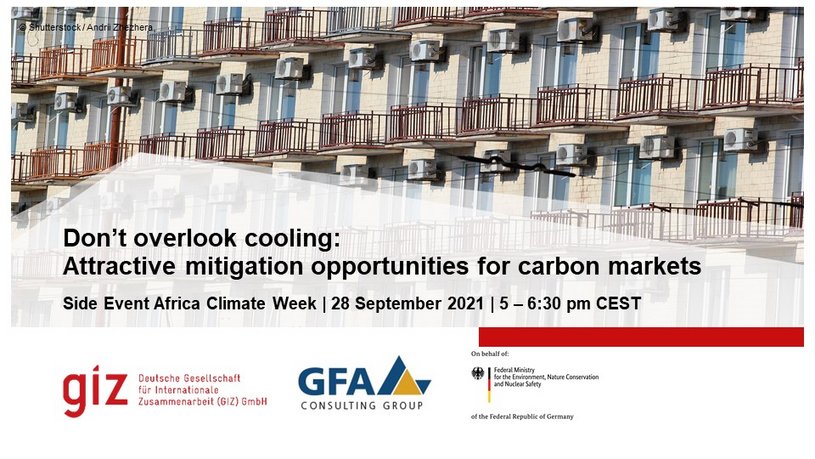GIZ Proklima Side Event during Africa Climate Week 2021
[Presentation is linked at the bottom of the page]
Cooling is a basic need – from refrigerated food and vaccines to better living conditions in hot climates. The positive effects of cooling, however, come with a downside. The cooling sector is a massive GHG emitter. This is due to appliances that are not energy-efficient and the high global warming potential of commonly used, synthetic refrigerants. Many air conditioners and refrigerators contain substances such as HFOs and HFCs which are up to 15,000 times more harmful to the climate than CO2.
Carbon emissions from space cooling have tripled since 1990 and are continuing to surge, with space cooling set to become the strongest driver of growth from buildings electricity over the next 30 years (IEA, 2018). Deep transformation of the sector is needed to accelerate the pathway to a healthy, resilient, zero emissions future.
This side event addressed the following questions:
- How are the climate goals of the Paris Agreement and the Kigali Amendment to the Montreal Protocol linked?
- Why do we need to transform our cooling sectors and how can we do it? (From a Southern African and a global perspective)
- How can we use carbon finance to encourage private sector investment in the cooling sector?
Grid Videos
Bashi Gaetsaloe on the need for Green Cooling in Southern Africa | GIZ Side Event | ACW 2021
Bashi Gaetsaloe on the need for Green Cooling in Southern Africa | GIZ Side Event | ACW 2021
This video is being blocked because of your cookie settings.
Carbon finance for leveraging private sector investments in the cooling sector (Joachim Schnurr, GFA)
Joachim Schnurr (GFA) on carbon finance for leveraging private sector investments | ACW 2021
This video is being blocked because of your cookie settings.

